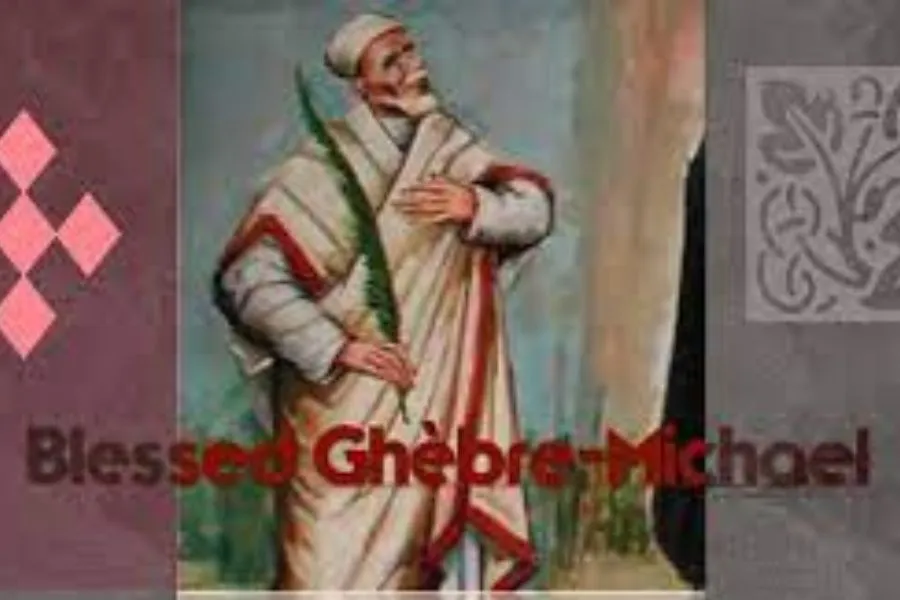For six years he is said to have faithfully performed the various duties of his state as a monk and carefully studied the whole Bible, the early Councils and the Fathers of the Church and all the other documents he could find.
In 1813, Blessed Ghebre-Mikael was named “Doctor in Ecclesiastic Sciences”, but his “thirst to drink deeper was unquenchable”, prompting him to begin a pilgrimage of knowledge.
While on a delegation to Cairo to ask for a new Bishop for Ethiopia, he was accompanied by a Catholic Priest, Justin de Jacobis, who became pivotal in his conversion to the Catholic faith.
For accepting to embark on the mission to Cairo, Fr. Jacobis is said to have put in a request to visit Rome to pay respect to Pope Gregory XVI.
After their meeting with the Patriarch Petro, having completed the difficult mission of the request for the new Bishop, the delegates were forbidden to go to Rome by the same Patriarch who warned them that they faced excommunication.
Nevertheless, the delegation proceeded to Rome, where Blessed Ghebre-Mikael is said to have discovered that the faith of the Catholic Church was “in harmonious continuity with the ancient Ethiopian Church.”
On returning to Adwa, in February 1844, Ghebre-Mikael asked Fr. Jacobis to receive him into the Catholic Church.
At the age of 59, Ghebre Mikael was secretly ordained a Priest on 1 January 1851 and appointed as teacher of the students of Fr. Jacobis.
He, Fr. Jacobis and their followers fell under persecution by Abuna Selama, the new Bishop while the newly ordained Priest was acting as Rector of the Seminary.
Blessed Ghebre-Mikael is said to have been “so viciously beaten” that blood gushed out of his mouth soaking his whole body. “Those who saw it quickly spread the rumor that he was dead,” reads the report detailing Ghebre-Mikael’s persecution, adding that after surviving the beating, he was imprisoned with his feet and hands chained tightly.








